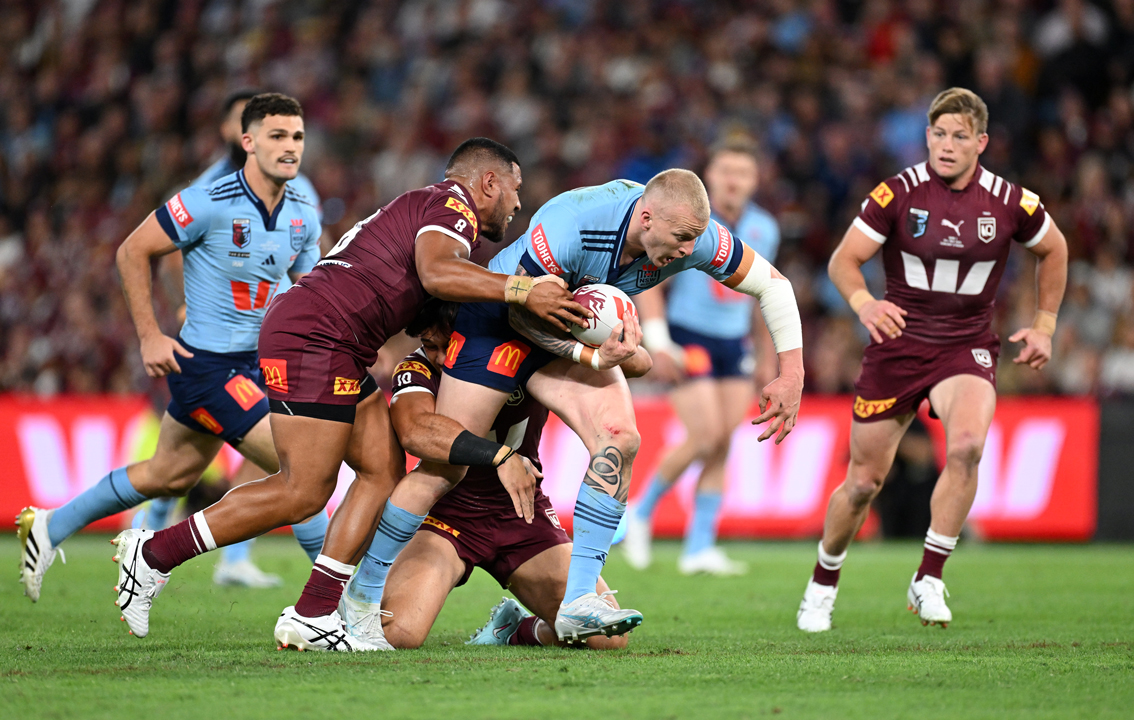

To many Australians, the NRL’s State of Origin (SOO) is just a game. To die-hard rugby league fans, the three encounters are more important than test matches against other countries and actually rival grand final day, because it’s not exclusive to two fanatical groups of followers, whose teams luckily have made it to the last game of the season.
The encounters don’t only generate interstate rivalry between New South Wales and Queensland, as other states line up to historically support the team from the north over the ‘big dog’ state that pioneered the Australian story after 1788. But these games don’t just generate interstate sporting rivalry, they create economic growth and lead to a spike in sickies by over-involved supporters.
This won’t surprise you, but ING has looked past the state-v-state, mate-v-mate rivalry that has driven national interest in these games. With Game Two set to be played in Perth tonight, ING has taken a look at the money that gets spent over these three games played over May to July. This research has come at a time when the economy needs a boost, with the March quarter economic growth number coming in at a weak 0.2%. The Australian Bureau of Statistics has shown we’re in a per capita recession.
Turning this economy around to get economic growth closer to 1% a quarter rather than the 0% that it is now, will rely on consumers and businesses spending more, and the global economy not being trumped by the crazy tariffs of the US President.
For the record, exports contribute over 20% to our overall growth of goods and services. The NRL is actually an exporter, earning money from overseas with its tours/games played with other countries, including the annual kick-off game in Las Vegas.
However, the main game is at home. And this is what ING’s Matt Bowen has identified gets spent over the State of Origin period:
While these numbers might surprise you, all this is nothing more than a snapshot of a bigger spending picture that’s very important to our overall economy.
ING’s research reveals that we spend $19 billion a year on sporting fandom, which tells footy-haters that our passion for the players on the field each weekend isn’t a waste of time, though it might have a regrettable side effect. At a time when even the galah at the local pet shop is crying out for greater productivity (which is more goods and services from Aussie workers), the research shows that 1.3 million workers admitted they have taken ‘a sickie’ to watch a major match.
That said, it seems like elevating sport over work commitments has an historically famous moment that indicates that even one of our Prime Ministers i.e., Bob Hawke endorsed sickies after we won the America’s Cup in 1983. Hawke told the country: “Any boss who sacks anyone for not turning up today is a bum!”
Finally, for those who see the value in a post-match sickie, there’s proof that a happy worker is actually more productive! In collaboration with British multinational telecoms firm BT, research by Oxford University’s Saïd Business School has found a conclusive link between happiness and productivity.
An extensive study into happiness and productivity has found that workers are 13% more productive when happy. The research was conducted in the contact centres of British telecoms firm BT over a six month period by Jan-Emmanuel De Neve (Saïd Business School, University of Oxford) George Ward (MIT) and Clement Bellet (Erasmus University Rotterdam). ‘We found that when workers are happier, they work faster by making more calls per hour worked and, importantly, convert more calls to sales,’ said Professor De Neve.
I guess if watching the State of Origin and sickies make a worker happier, there might be a payoff that ‘bum’ bosses don’t comprehend!